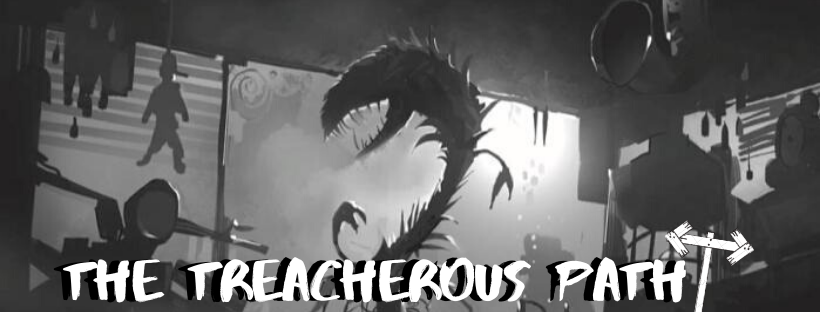Let me lead off with a warning: I'm about to do a deep dive into a nitty gritty area of game design. This is the kind of stuff that I like to think about, but it might not be the most interesting topic for some people.
Today I'm talking about information in RPGs, how and when it's shared and withheld, and the follow-on effects that result from that information moving around. In order for us to have a basis from which to work, I have to start with some game theory.
Perfect vs Imperfect Information
When we play, we have to deal with all sorts of data moving back and forth between players and the GM. To further complicate matters, we also have to deal with the data moving to and from the characters in the game, who have a different set of data than the players. Who knows what and when leads us to the concept of perfect information versus imperfect information.
In a perfect information game a player knows everything that is going on when they make a choice within the structure of the rules. They can see the entire game laid out before them and there is nothing left to chance. The only thing they do not know is the intent of their opponent, but they can infer that based on what has happened up to that moment. Chess is the best example of a perfect information game.
An imperfect information game involves hidden data that a player cannot know before they take action. They must guess, hope, read the intent of their opponent, and play the odds. Poker is a good example of an imperfect information game.
Both of these scenarios leave out our old friend chaos and his habit of calling random numbers for fun. A lot of games seem to have perfect information but include a random element like dice rolls. The scholarship isn't in total agreement on this, but random outcomes sort of prevent perfect information scenarios. The player taking action can know all of the possible outcomes of a random roll, and may even know which results are most probable, but they cannot know what outcome they will get.
So what are RPGs? That depends on the RPG. We’ll start by putting aside the random elements and state that a perfect information RPG is one where the players (not the characters) are aware of all possible outcomes of an action before they roll the dice. Some games strive for perfect information, while others reject it outright. Most games mix and match.
The least perfect games have the most information hidden from the players. The earliest iterations of D&D leaned heavily on imperfect information, as do many games today. The DM screen itself is a driver of imperfect information, hiding not just intentions but outcomes from the players, giving the DM more control over the game and allowing the DM to fudge things in any direction they wish.
D&D 5e is a weird mix of perfect and imperfect moments. Depending on the DM, players may or may not know the DC of a roll before they roll, they may or may not know the effects of a success or failure ahead of time, and they may not even know why they’re rolling dice, yet they know all of the possible outcomes for initiative rolls, damage rolls, most attack rolls, and some spells.
At the more perfect end of the scale you have games like Apocalypse World and its many descendants, whereby you make a move and get one of three possible outcomes leading to a defined list of possible consequences. In games Powered By The Apocalypse, you know what you’re getting into.
So What?
Why is this important? All of these games can be fun, so all of these approaches must be valid, right? Well, yes, but there are a few caveats. Levels of information perfection change how players play a game. The least perfect games rely the most on trust between the players and the GM. The players are fumbling through the dark and they exist in a world that they have little control over. The most perfect games have a different problem, players know the exact cost of failure upfront and that level of knowledge can deter them from attempting certain types of actions, especially those of the high risk/high reward variety. They may be more inclined to play the numbers than to play their characters.
All rule sets also deal with what I call the stealth paradox: How does the game deal with covert actions against the players? If NPC’s attempt stealthy actions, and the game has high information perfection, then the players know what’s going on. Even if the NPCs succeed, the players know something is up even if the characters don’t, and this can affect their actions. More imperfect games can better hide the intent from the players, but require more trust. How do the players know they got a fair chance to detect the covert action? Did the GM ask for a blind roll? Or did the GM roll and compare against a passive value of the characters? Did they just decide the outcome by fiat?
The Treacherous Path
All of this leads to the question: What do I want to do with my games? Rapidfire has always been hazy on information flow and where it sits on the perfect/imperfect spectrum. After much thought -- and annoying a few people getting their opinions -- I have reached a compromise. Rapidfire will remain somewhat imperfect, but with precise caveats to how and when information is shared.
First, players will have perfect information on their dice difficulties. They never roll blind. They will act with intent, and know the difficulty number they need to hit to achieve that intent. They plan their action without knowing the difficulty, but the GM has to state it before the players roll dice. Compiled with this is a move away from the GM rolling dice. We’re pushing as much of the rolling as possible to the players. Outside of important combats, NPCs never roll dice. Instead they have difficulty ratings for most actions, and the players roll against them.
Next, the players will have imperfect information on outcomes. They will know what happens if they succeed -- they achieve their intent to a greater or lesser degree -- but the GM keeps the failure consequences to themselves. We hope this will help encourage a more daring style of play, and allow GMs to push towards an "add a complication" style of failure as opposed to a simple pass/fail binary.
Third is our forced action exception. In most cases, the player states an intent and the GM tells them it happens or calls for a roll. However, when the GM calls for a roll from a player because of an NPC action, the GM has to inform the player of the price of failure ahead of time. This spits in the face of the stealth paradox, letting players explicitly know when they're getting blindsided by a sneaky NPC in some way. After far too much navel-gazing, I’ve decided I'm OK with this. We have a couple special rules that limit some of the meta-gaming (I’ll save those for another blog post). It also forces the player to decide if it's worth it to expend limited game-play resources -- Reserve, in this case -- to have their character react to an NPC's action, and it forces the GM to get more creative about ways to stealthily move about the character's sphere of influence without direct action necessitating a roll. It does require players to act in a mature manner when they fail and not meta-game the results -- what I call my "we're all adults here" rule -- but I think players and GMs can adapt to the system over time, and find it interesting and rewarding.
That’s it for our imperfect rules. Next up will be a pet peeve of mine: Chosen One narratives.


38 comments
zmasdDMYNrZ
eAXCKuLQzwgU
EISwZcNMOo
bnYOsWdlqhjxDQR
fPcqKhMmJ